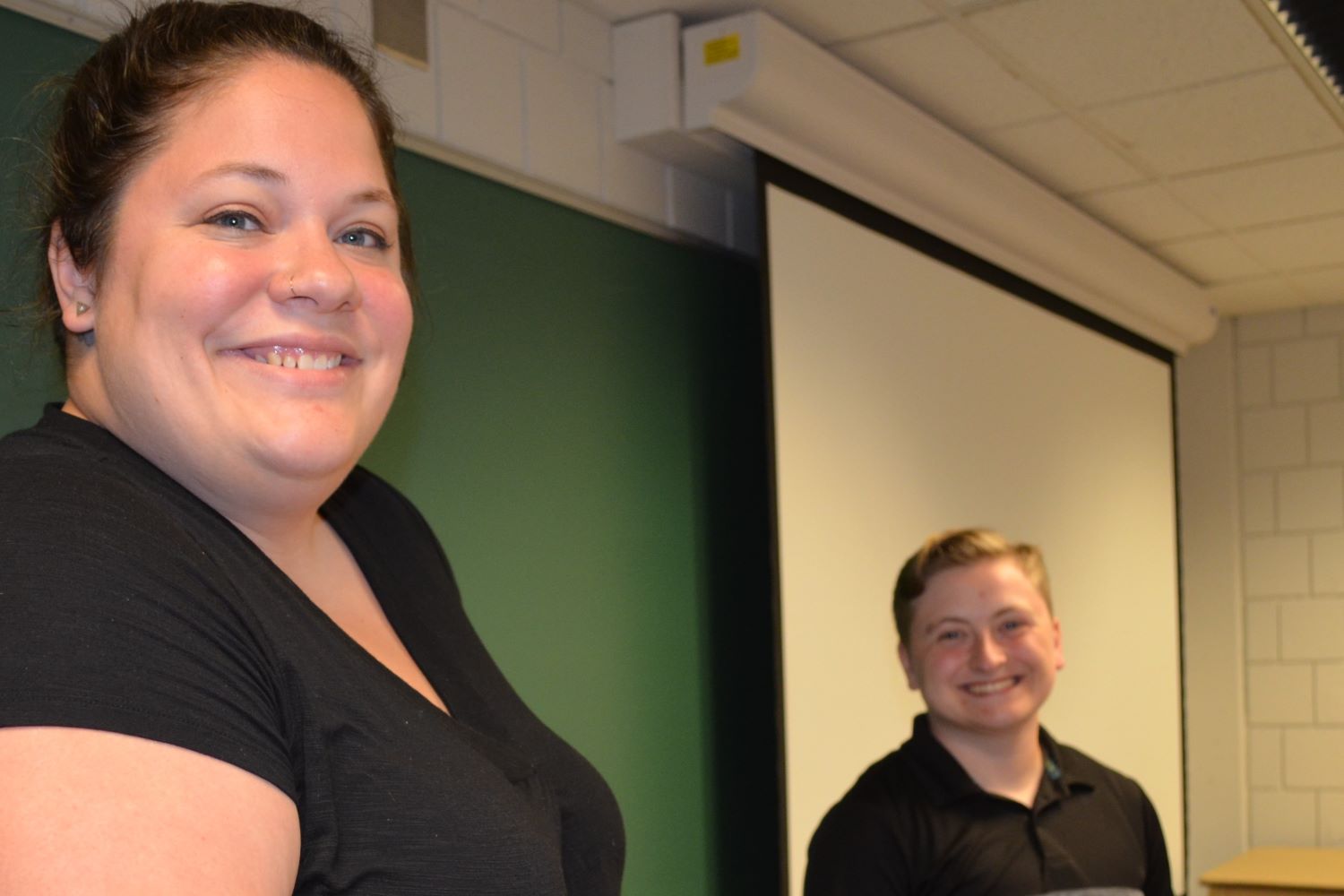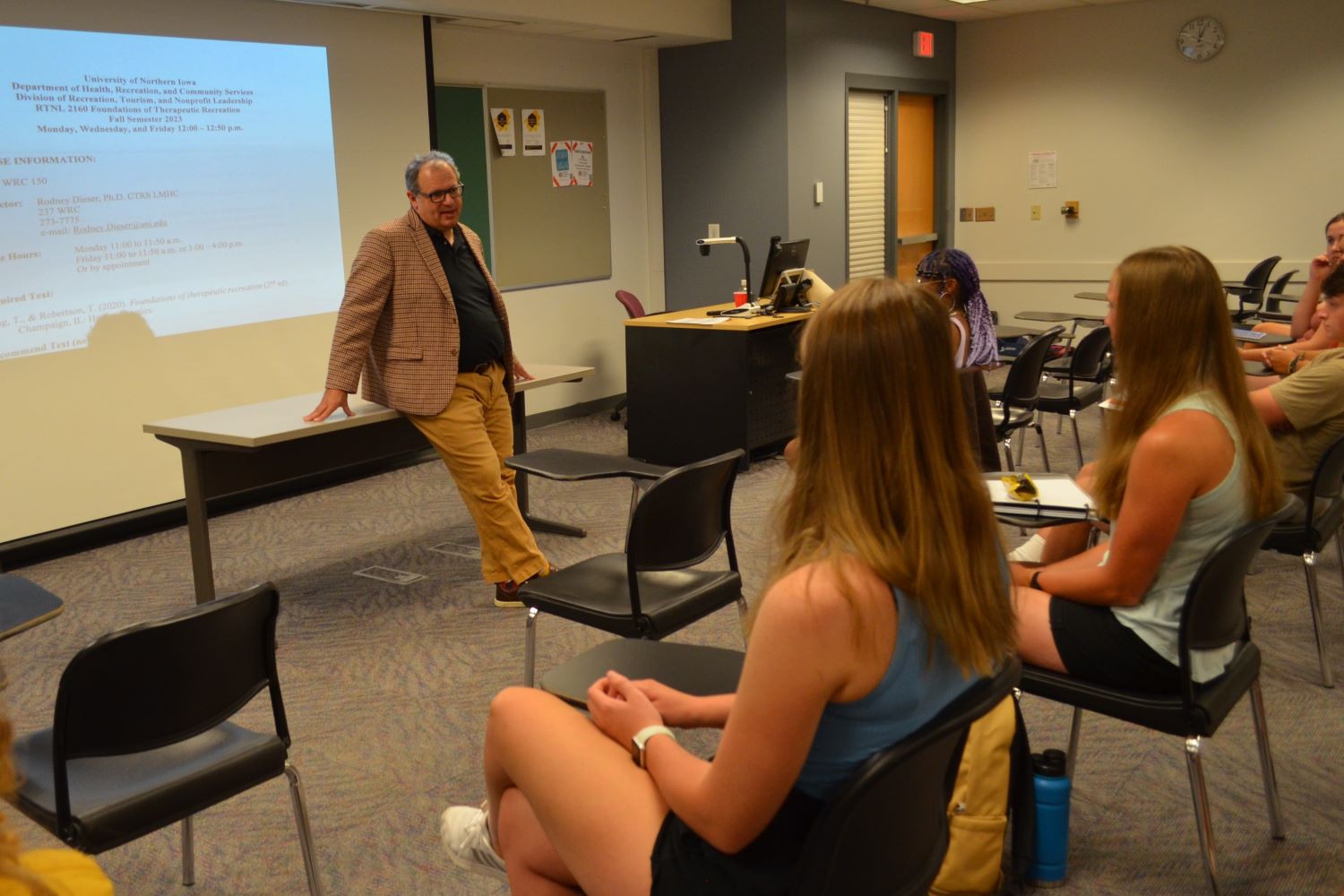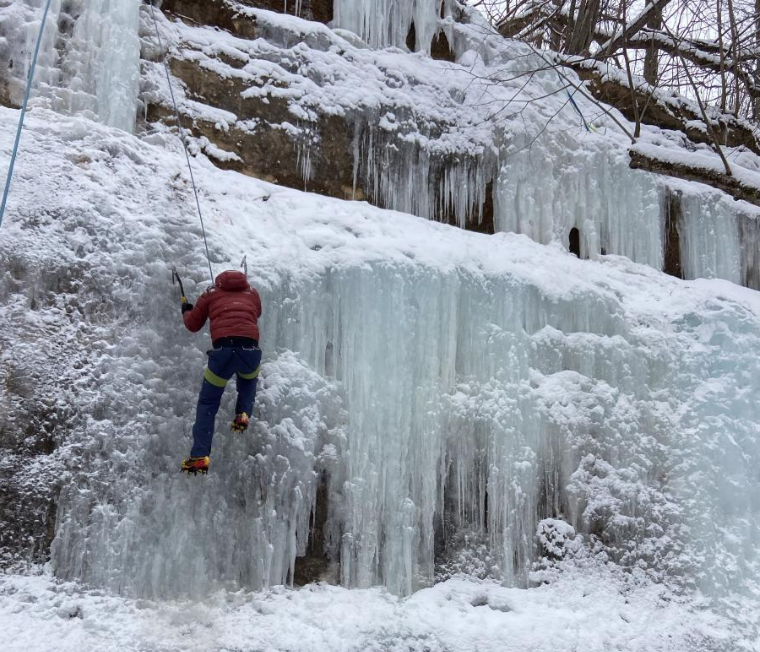Recreation, Tourism and Nonprofit Leadership
Master of Arts
Ready to enhance your leadership skills in managing youth, community and outdoor programs as well as tourism agencies within public or nonprofit sectors? Enroll in our on campus MA program to gain the latest knowledge and best practices for managing recreation, tourism and nonprofit leadership (RTNL) programs and organizations. Grow intellectually and professionally while preparing to meet the needs of today's communities.
- Join a cohort of students and attend in-person classes in UNI’s Wellness and Recreation Center, a lively facility dedicated to athletics, fitness, rock climbing, and aquatics.
- Learn to design programs and manage facilities for recreation, tourism and nonprofit agencies.
- Explore on-campus job opportunities in recreation and athletics or apply for a graduate assistant position in outdoor education and leadership.
Renewed Focus on RTNL
We're excited to share that our master's degree program at UNI is transitioning to a recreation, tourism, and nonprofit leadership (RNTL) focus (formerly community health and recreation). This shift reflects our commitment to providing a specialized education tailored to these industries' evolving needs. Watch for updates in the University Catalog.

Leadership
Empower healthy choices and foster resiliency by directing youth camps, outdoor programs, or senior centers.
Communities
Facilitate community building by creating recreational centers, playgrounds, visitor centers, parks, and natural areas that promote connectivity.
Expansion
Embark on a dynamic career in the growing recreation industries while shaping the future of nonprofit or government agencies.
Interested? Request information
Tell us more and we'll send information on how you can succeed with a recreation, tourism and nonprofit leadership MA degree from the University of Northern Iowa College of Education.

Chris Kowalski, EdD
Recreation, Tourism and Nonprofit Leadership Graduate Program Coordinator
rtnl@uni.edu

Cheryl Meller
COE Graduate Recruitment Coordinator
coegradstudies@uni.edu
Career Opportunities
With this degree, your potential for advancement in a variety of career directions expands greatly. Our graduates are prepared to grow their careers in settings which include:
- Campus recreation
- Nonprofit agencies
- Parks and community recreation
- Tourism agencies
- Sports administration
- Outdoor resource management
- Youth services and camps
- Senior centers and assisted living
- Outdoor and environmental education
The U.S. outdoor recreation industry experienced a 7% growth from 2021 to 2022, including for-profit sectors like eco-tourism, nonprofit organizations such as Outward Bound, and government agencies like campus recreation at public universities, departments of natural resources or the U.S. Forest Service.
Courses & Curriculum
The RTNL MA program offers a 33-credit-hour degree with thesis, non-thesis, and internship options. The program includes graduate courses and a wide range of diverse elective options. Coursework includes:
- Philosophy/History/Ethics
- Quantitative Methods
- Cultural Competency
- Social Policy or Social Psychology
- Financial Decision-Making
- Management Issues
- Marketing the RTNL Agency
- Special Events Management
Next Steps
Apply Now
Our application process is smooth and easy. You can apply now and pay your fee later or even get it waived, if you qualify. Current or former UNI students will also have their app fee waived.
Requirements for Admission
- Undergraduate and/or graduate official and final transcripts
- Personal Statement, addressing the motivations for seeking degree at UNI, research interests, professional goals
- 2.75 is the minimum GPA to be accepted without provision; applicants with a GPA lower than 2.75 may still be admitted provisionally, at the discretion of the program and the Graduate College
- 2 letters of recommendation
- A resume or CV
- Application fee (this can be waived or deferred, if you qualify).
Fall semester applications are due on March 1 for full consideration for admission and funding.
Requirements for International Applicants
Along with the basic application requirements, international applicants also need:
- Proof of English proficiency
- A copy of the personal data page of your passport
- A completed UNI Financial Statement and Certification form
- Non-refundable application fee.
Fund Your Degree
Get the opportunity to learn and fund your degree through hands-on experiences, earning monetary awards, or a combination of both. Visit one of the following pages to learn about graduate assistantships, scholarships, and other funding options.





